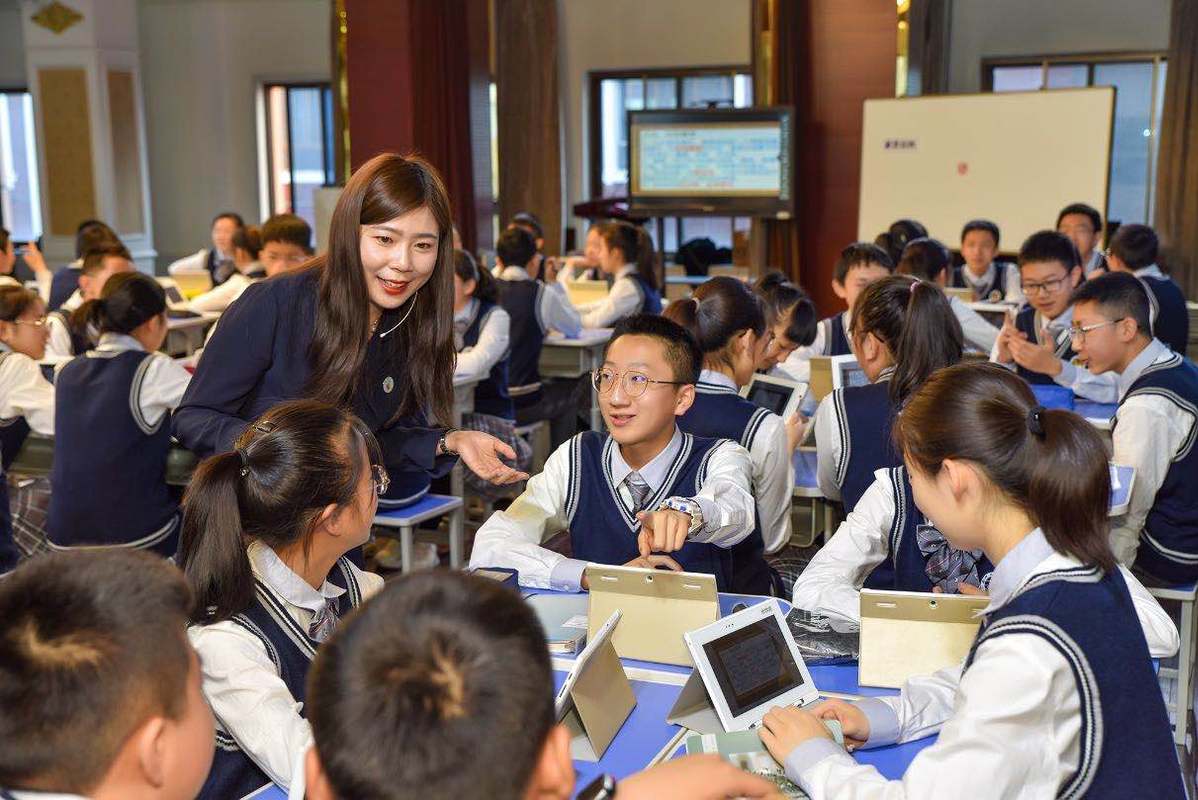Intl learning in the digital sphere draws educators, experts to conference
chinadaily.com.cn | Updated: 2021-04-25 16:49

Almost all Chinese children are online by the age of 10, but a gap in internet literacy risks solidifying the divide between rich and poor.
Concerned about the long-term societal effects of technological disparity, educators and institutions are stepping up efforts to understand and end digital poverty among children.
Chinese and international experts came together on Sunday at the International Conference on Childhood Studies in Shenzhen, aiming to improve the well-being of children across the globe and contribute to pedagogical knowledge and education reform.
Children will be left behind if they don't know the basics of finding and evaluating information online, how to protect themselves from fraud and predators, and how to use the internet to cultivate their own knowledge in areas like music and literature.
Edward Cheng, vice-president of Tencent and chief executive officer of China Literature Limited and Tencent Pictures, described initiatives to make sure children in China are not left behind.
A few years ago, Tencent joined forces with the Hefeng Art Foundation, a Chinese social welfare organization, to launch the Art Action project, bringing together art institutions and university professors to provide pro bono art lessons for rural Chinese children through online courses, according to Cheng. Some of the names on the roster of instructors included famed Chinese pianist Lang Lang and music educator Bao Yuankai.
"While digital technologies help children explore the world, they can also help cultivate their literary and artistic literacy, so that they can broaden their horizons and achieve more well-rounded, healthier development," Cheng said at the conference, which was put on by the International Council for Philosophy and Human Sciences.
Zongkui Zhou, director of the Key Laboratory of Adolescent Cyberpsychology and Behavior at Central China Normal University, gave a presentation on the university's online literacy course, which leverages the latest pedagogical methodologies to educate children about internet use.
"The goal is to improve internet literacy of children, bolster their concept of internet safety and foster healthy digital development in the online environment," Zhou explained.
Research shows that the internet is impacting young digital natives' daily lives, identities and values.
Digital tools and literacy afford youth the power to educate themselves for life. Access to digital tools, including hardware, software, and the internet, has a direct connection to closing economic and social gaps due to educational disparities across developmentally diverse regions.
In recent years, digital literacy has become an increasingly crucial issue. According to a study published by the Chinese Academy of Social Sciences, in China alone, internet penetration has reached 99.2 percent among minors, with children first coming into contact with the internet between the ages of 6 and 10.
Cheng said Tencent has already begun working with a number of schools across China to improve youth internet literacy, both directly and by further educating their teachers.
In 2018, Tencent launched the DN.A Program, the Digital Natives Action program, hoping to rally professional organizations to give children equal opportunity for internet access as they grow up.
Tencent also established the Children's Internet Literacy Research Center in association with Central China Normal University's Key Laboratory of Adolescent Cyberpsychology and Behavior to develop internet literacy courses for children at different stages of development and introduce them to curricula. At present, these courses have been implemented in schools in Hubei, Guangdong, Fujian and other provinces across China.
"Contemporary global integration, from digital technologies to pandemic disasters, challenges human beings to become human persons, and this is an educational need," said Luiz Oosterbeek, professor at the Polytechnic Institute of Tomar in Portugal.
























